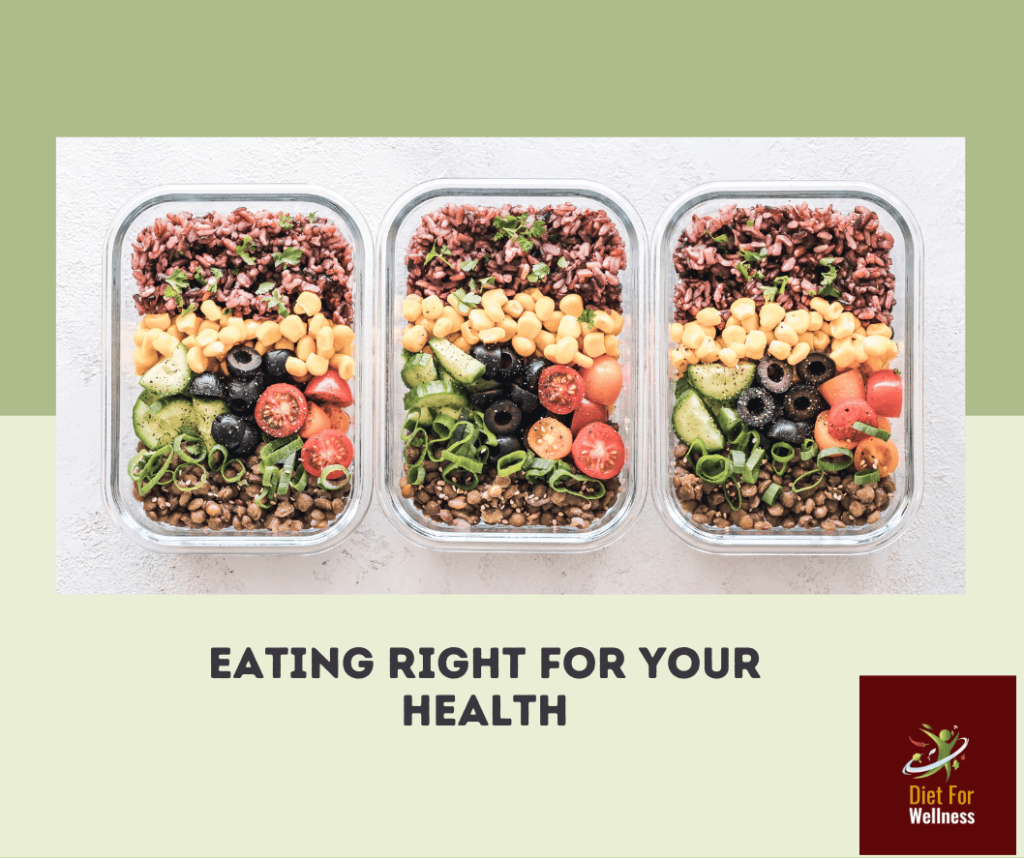Eating Right for Your Health Needs

Achieving a healthy diet depends on striking the right balance between caloric intake and physical activity. Essentially, the goal is to put to use the energy you consume with the energy your body expends.
When you consume excess calories through food and beverages, your body stores the surplus energy as fat, leading to weight gain. Conversely, inadequate intake results in weight loss as your body taps into its reserves for energy.
To ensure optimal nutrition, it’s crucial to incorporate diverse food options into your diet. This variety ensures that your body receives all the essential nutrients it requires for proper functioning.
Recommended daily caloric intake varies based on factors like gender and activity level. Typically, men are advised to consume around 2,500 calories per day, while women should aim for approximately 2,000 calories per day.
Unfortunately, many adults in India are surpassing their caloric needs, leading to overconsumption. Thus, it’s essential to make conscious efforts to reduce calorie intake if necessary.
Also as you are surrounded with fad diets and conflicting nutrition advice, it can be challenging to determine what truly constitutes “eating right” for your unique health needs.
Whether you’re aiming to manage a specific health condition, maintain a healthy weight, or simply feel your best, adopting a balanced and personalized approach to nutrition is key.
First and foremost, you need to understand your health requirements.
Factors such as age, gender, activity level, metabolic rate, medical history, and any existing health conditions all play a role in determining your nutritional requirements. Consulting with a healthcare professional or registered dietitian can help you assess your unique needs and develop a personalized nutrition plan.
Then comes, balanced nutrition
Regardless of your health goals or dietary preferences, a balanced diet is essential for optimal health. This means consuming a variety of nutrient-rich foods from all food groups, including fruits, vegetables, whole grains, lean proteins, and healthy fats. Aim to fill your plate with a colorful array of fruits and vegetables, which provide essential vitamins, minerals, and antioxidants. Choose whole grains instead of refined grains, and lean sources of protein as well. Incorporating healthy fats from sources can also support heart health and brain function.
Managing health conditions
If you have a specific health condition or medical concern, such as diabetes, high blood pressure, or food allergies, your dietary needs may require additional attention. In these cases, it’s essential to work closely with a healthcare professional or registered dietitian to develop a nutrition plan that addresses your unique needs while still providing adequate nourishment. For example, individuals with diabetes may need to monitor their carbohydrate intake and focus on portion control, while those with food allergies must be diligent about reading food labels and avoiding potential allergens.
Listening to your body
In addition to considering external factors such as age and health conditions, it’s important to tune in to your body’s internal cues and signals. Pay attention to hunger and fullness cues, and eat mindfully rather than relying on external cues such as portion sizes or food labels. Practice intuitive eating, which involves listening to your body’s hunger and fullness signals, eating when hungry, and stopping when satisfied. This can help you develop a healthier relationship with food and foster a greater sense of self-awareness.
Practical Tips for Healthy Eating
● Plan and prepare meals ahead of time to avoid relying on convenience foods.
● Keep healthy snacks on hand, such as fresh fruit, nuts, and yogurt, to curb cravings and prevent overeating.
● Stay hydrated by drinking plenty of water throughout the day.
● Limit processed foods, sugary snacks, and beverages high in added sugars.
● Experiment with new recipes and flavors to keep meals exciting and enjoyable.
● Be mindful of emotional eating triggers and find alternative ways to cope with stress or boredom.
Eating right for your health needs is about more than just following a strict diet or counting calories. It’s about nourishing your body with the nutrients it needs to thrive, while also considering your individual health goals and preferences. Small changes add up over time, so start wherever you are and make gradual adjustments as needed. Your body will thank you for it!
